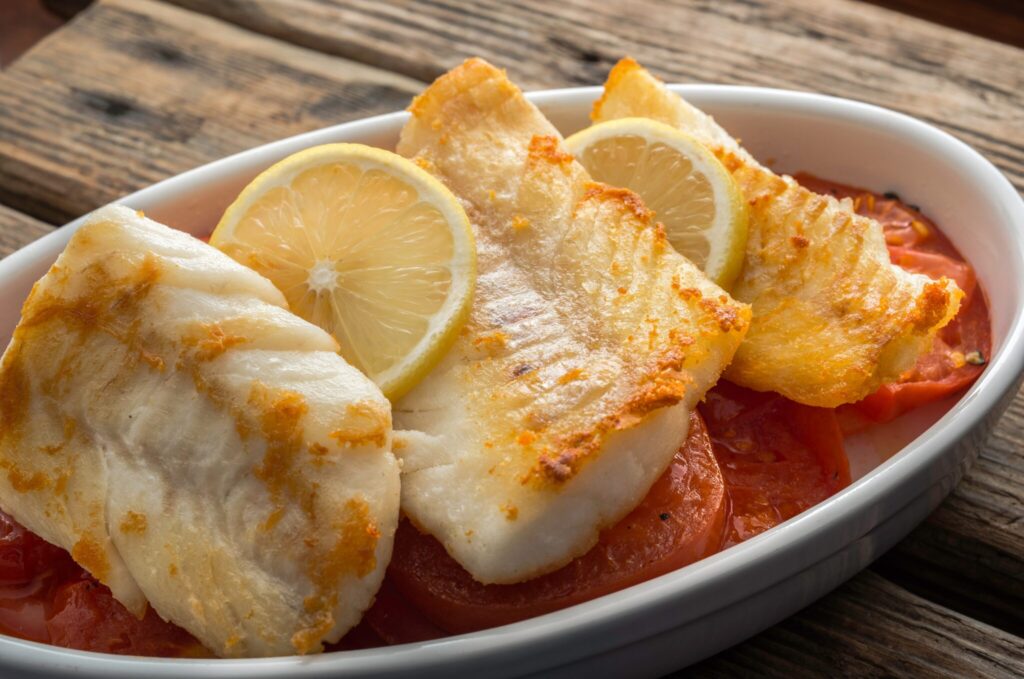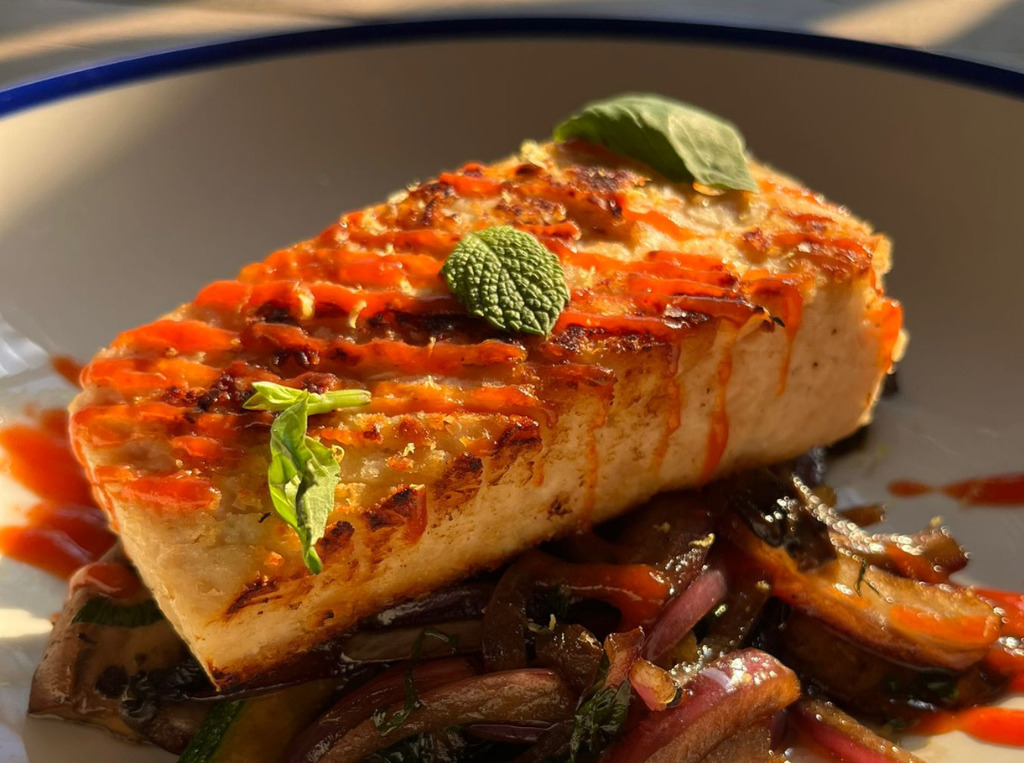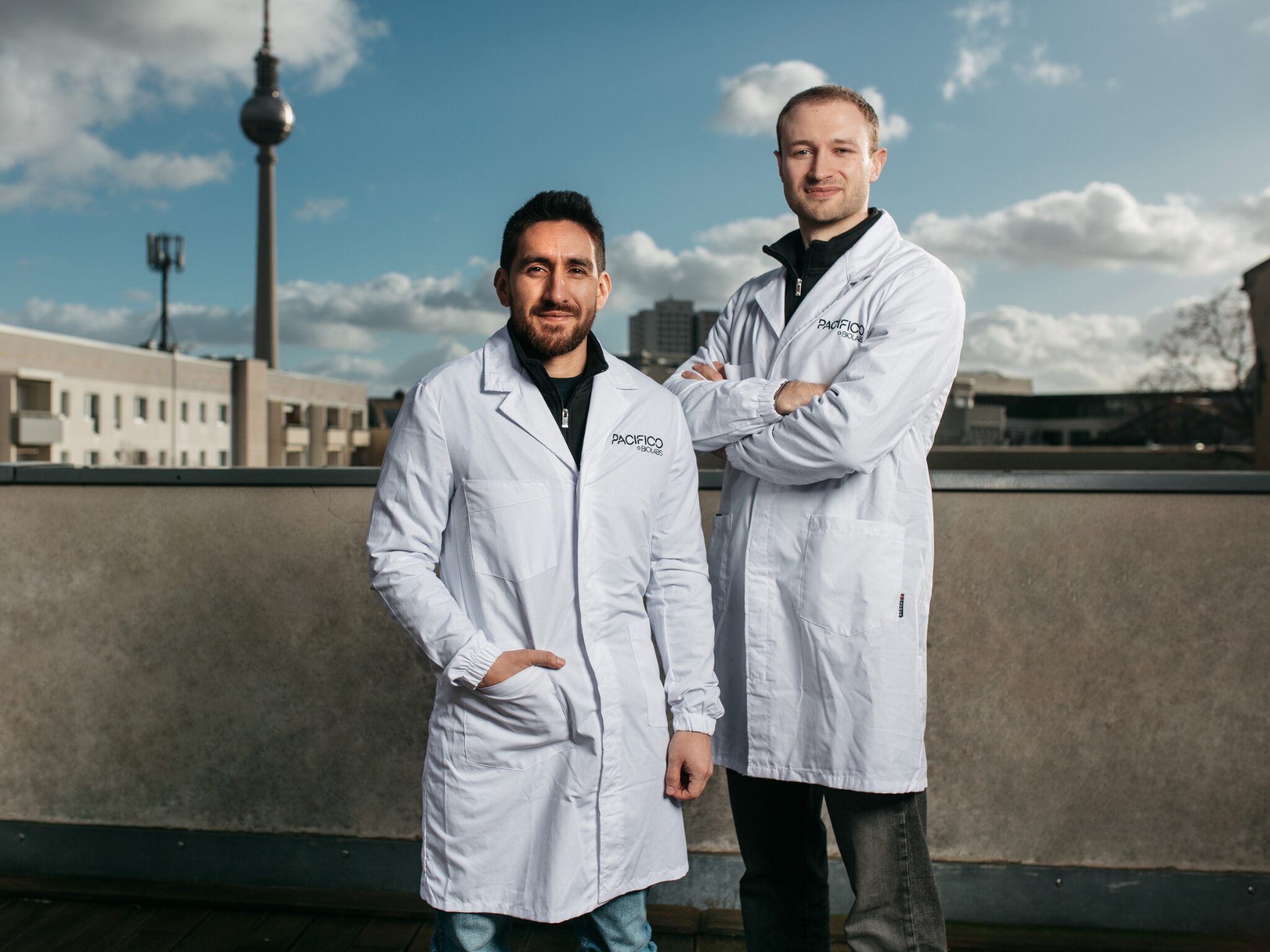With a $3.3M Pre-Seed Round, Pacifico Biolabs Bets on Fermentation to Perk Up Alternative Seafood Sector
5 Mins Read
German startup Pacifico Foodlabs, which makes alternative proteins from biomass fermentation, has emerged from stealth with $3.3M in pre-seed financing. It is starting with seafood analogues.
Founded in November 2022 by Washington Logrono and Zac Austin, Pacifico Biolabs’ funding round was led by Simon Capital and FoodLabs, with participation from Exceptional Ventures and Sprout & About Ventures as well.
“We are impressed by the swift and significant progress Pacifico Biolabs has made in a short time since founding. Their innovative technical approach to alternative seafood addresses critical environmental and ethical concerns, fitting perfectly with the growing demand for sustainable food choices,” said Simon Capital managing partner Friedrich Droste.
The capital will allow the startup to scale up its fermentation technology to produce alternative proteins and launch its first products – which could include white fish filets – in the European market, following regulatory approval.
Combining multiple microorganisms for fermentation-powered seafood

Pacifico Biolabs uses biomass fermentation to develop whole-muscle structures for fish alternatives, although its tech can be used to create a range of meat analogues as well as in functional food applications. The company decided to start with seafood for its high opportunity of impact, strong commercial viability and scientific compatibility.
The Berlin-based startup uses multiple microorganisms – including mycelium – to achieve the optimal flavour and textural attributes, as well as boost the nutritional credentials of the product. Plus, it is valorising food industry sidestreams to reduce food waste.
With infrastructure a major expenditure for fermentation tech, Pacifico Biolabs is now building a new production process. “Our technology was developed with a focus on solving many of the challenges that have been faced by both plant-based and fermentation companies in the alternative protein sector,” said CEO Zac Austin.
Still in its infancy, the startup is establishing a strong presence in Leipzig, having forged R&D partnerships with research institutions and attracting specialised talent to its team. As a testament to its sustainability credentials, the company was the winner in the Net-Zero Food System Mission category at the EU-funded EIT FOOD Summit in Lisbon last November.
Pacifico Foodlabs is currently optimising its tech exclusively for large-scale production – once it can effectively do so, Austin told TechCrunch it could potentially manufacture alternative seafood at costs below the cheapest farmed fish.
“It’s about creating a practical model that is easy to scale,” he said. “It can be made at a low cost, which means it will be economically viable for everything from chicken all the way through to, for example, mayonnaise. Beyond seafood is definitely part of what I would say is our 10-year plan.”
Increased attention on seafood and alternatives

Pacifico Foodlabs’ emergence comes at a curious time for alternative seafood. In the last few months, two plant-based startups – New Wave Foods and Ordinary Seafood – have been forced to shut down, highlighting the difficulties faced by brands in this sector.
Despite vegan seafood outpacing the plant-based meat sector to deliver growth in both unit and dollar sales from 2021-22, its retail sales only hit $14M, which is just 1% of the $1.2B made by the overall meat analogues category. Its contribution to the overall seafood sector is even smaller, representing a mere 0.2% of total sales.
But while there are at least 120 companies working with alternative seafood (as of 2021), only a few – like Esensia Foods and Aqua Cultured Foods – are working on products derived from fermentation, a sector that comfortably outfinanced both plant-based and cultivated meat in the first half of last year, and has breached the $4B threshold in all-time funding.
Similarly, despite a slowdown in food tech VC funding, there was some success to be had for vegan seafood companies in 2023, with Canada’s Konscious Foods reeling in $26M, US startup Aqua Cultured Foods raising $5.5M, Toronto-based New School Foods bringing in $12M, and The Ish Company securing $5M. In fact, in its newsletter Aquablurb, the Fish Site reported that VC investment in aquaculture and alternative seafood reached $808M across 56 publicly announced rounds last year.
Marrying fermentation with seafood – an industry riddled with a litany of human rights ocean pollution, and health concerns – could lay a platform for players like Pacifico Biolabs to succeed. This was the basis of the Canadian partnership between plant-based seafood company New School Foods, precision fermentation startup Liven Proteins and dehydration solutions provider NuWave Research, which combined last year on a $11.4M (partly government-funded) project to craft whole-cut vegan salmon.
This whole-muscle approach – one favoured by Pacifico Biolabs too – is likely to appeal to consumers. Texture has been identified through multiple consumer surveys as one of the main purchase drivers as well as barriers to plant-based seafood consumption. Providing people with products that speak to this desire will win, and this is the hope of brands like Aqua Cultured Foods, Esencia Foods and Revo Foods.
The latter recently landed a legal victory over the City of Vienna after a court dismissed a suit brought accusing the food tech startup of misleading consumers with its product labels. In the US too, fishing vessel operators have appealed a lower court ruling that would mandate them to pay for a government official to monitor for overfishing, which could overturn a cornerstone of the US legal system.
So the seafood industry is in the waves everywhere right now. Can Pacifico Biolabs capitalise? Patrick Noller, general partner at lead investor FoodLabs, certainly thinks so. “This focus is not only a strategic move, but also aligns with the pressing need for sustainable practices in the seafood sector,” he said of the investment. “We are confident that Pacifico’s technology strongly positions them to transform seafood and beyond, addressing the urgent demands of a changing climate.”




